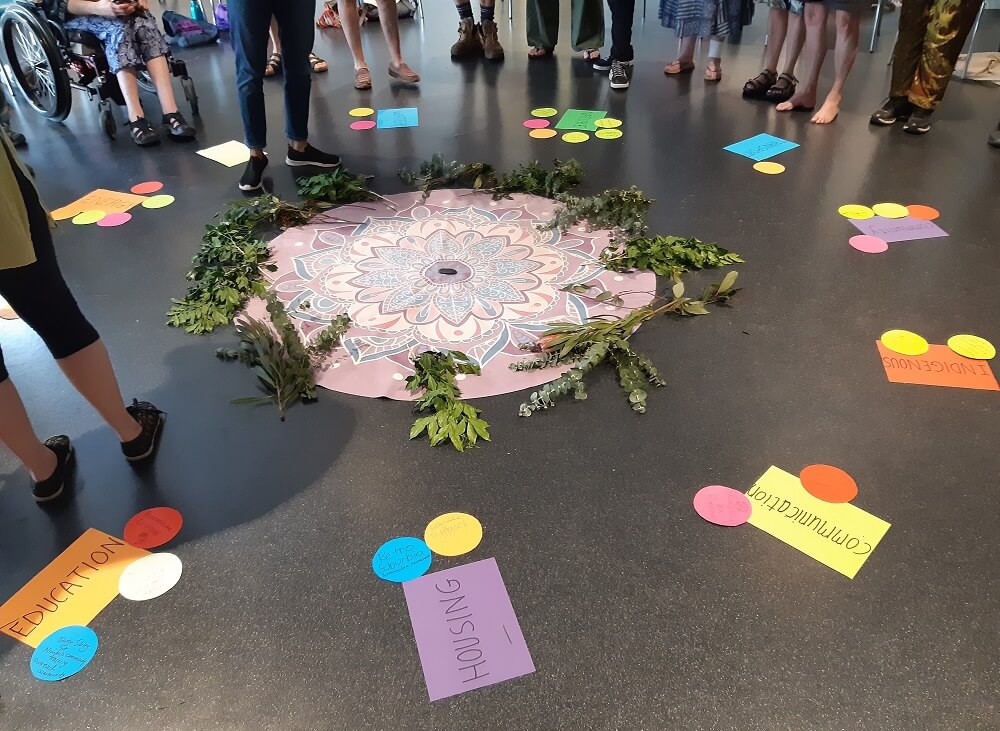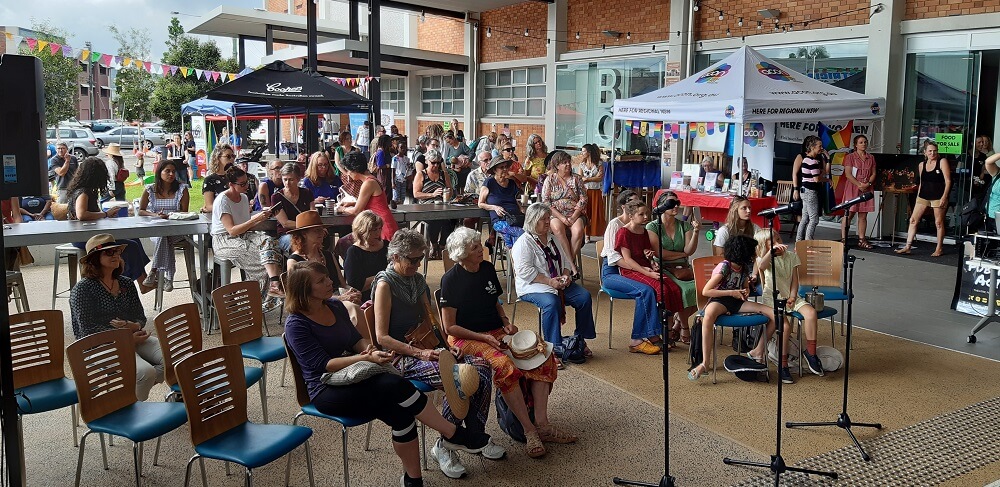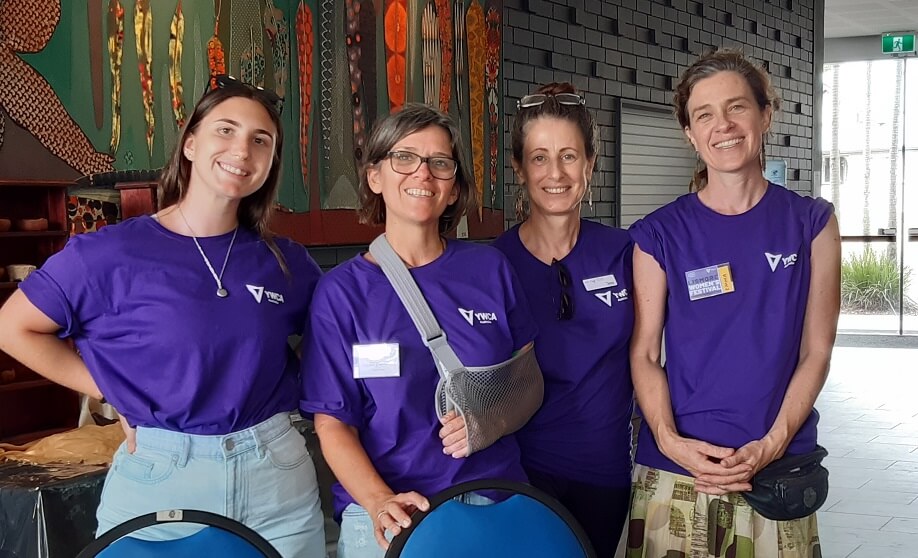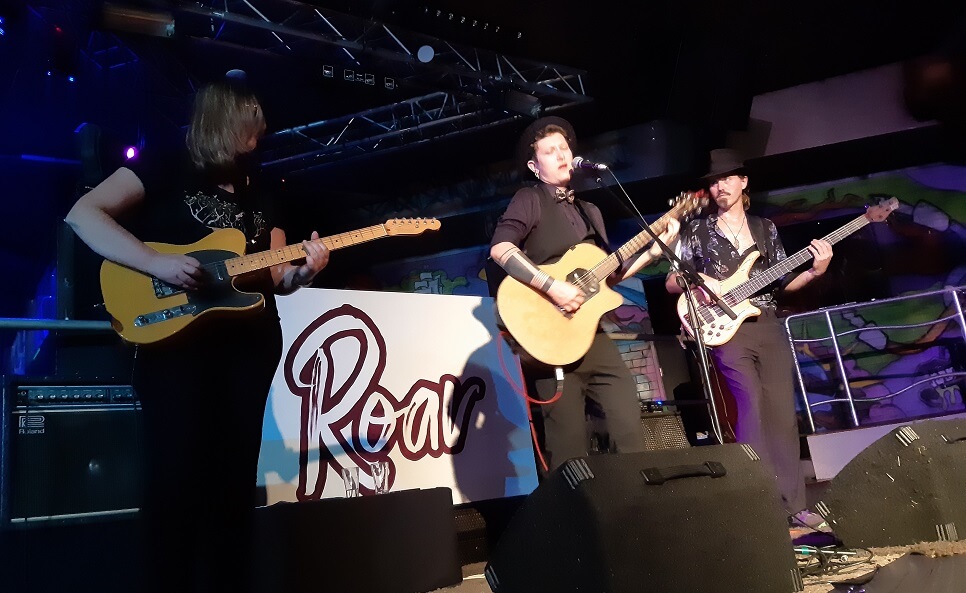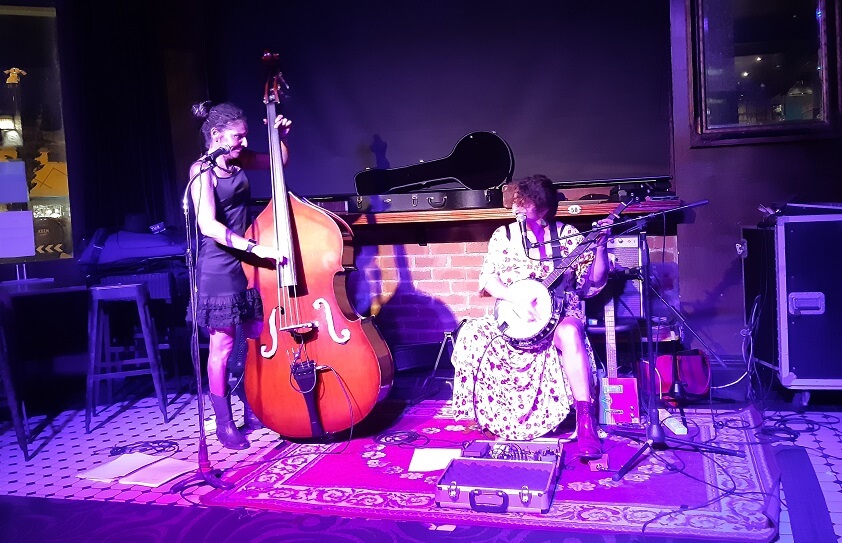This speech was delivered by Aurora Sapphire Matchett, a YWCA Young Women’s Councillor at the Lismore Women’s Festival held from 6-8 March 2020.
Let me begin by acknowledging that we are gathered here today on the traditional land of the Widjabal People of the Bundjalung Nation. I pay my respects to Elders past, present and future, as it was in the beginning and always will be Aboriginal Land.
Thank you to Emma Newman from YWCA Australia for organising this wonderful event and for inviting me here today. Diverse and inclusive community events like this help to drive us closer to an intersectional and equal future.
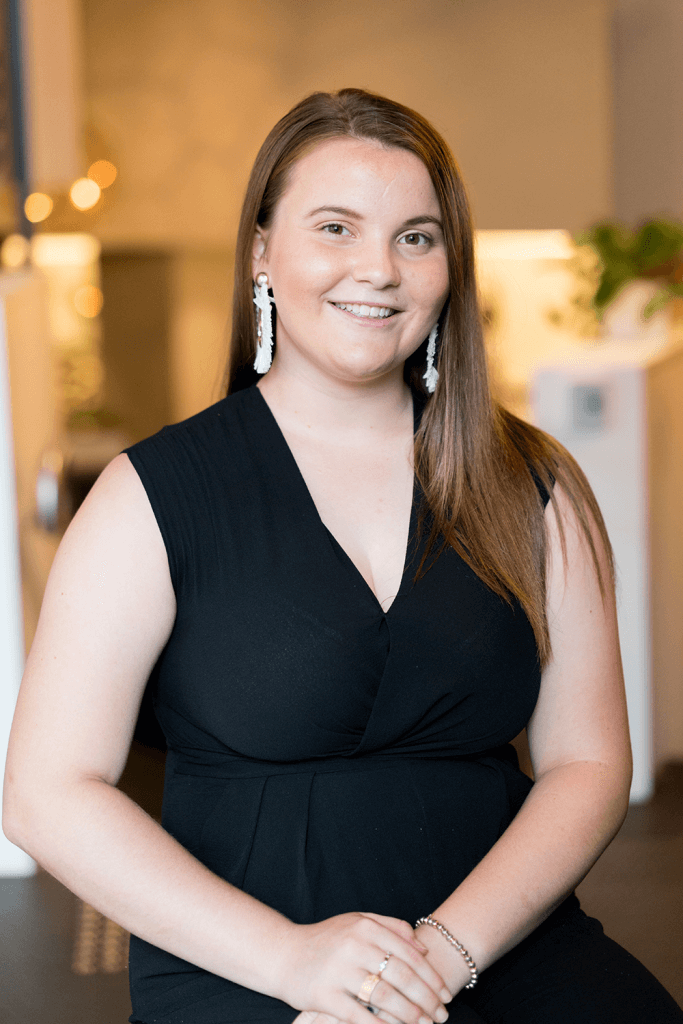
For those who don’t know me, my name is Aurora Sapphire Matchett, I’m 17 and live in Sydney. I sit on the YWCA Young Women’s Council - a representative body of 18 young women and girls from all around Australia. I live with Sensorineural Hearing loss, and am a strong advocate for Disability inclusion, Sexual health and Education, Body Autonomy and Ending Domestic Violence.
At 8 months old my mum took me to my first IWD March, marching for the rights of women experiencing domestic violence. Advocating for change is ageless and is a big part of my social justice journey. I have been raised with wonderful support from both my parents, support in all areas of my life. My mum has instilled in me from a young age that as long as I am using my voice to create a positive impact within the world, that I could raise it as loud as possible.
I am surrounded by many inspirational women, like my Mum who on top of being an all-round Boss Woman, helps to create job opportunities for people living with intellectual disabilities in Film and TV, my teachers such as Mrs Perritt my legal teacher who is an amazing support for all her students in and out of the classroom, and the women within my social circle; the ones on the Young Women’s Council, my friends, and overall my family. Each one of these women is creating an equal world within their own spaces, one that bridges economic, gender, race and ability divides.
The IWD website states that “an equal world is an enabled world, one that allows no room stereotypes or bias but amplifies perceptions and celebrates all achievements, big and small.”
But to achieve such ideas we must unite as a community to be a collective front against inequality in all environments. You see achieving equality is not a female issue; it’s a social and economic imperative. The benefits of achieving full gender equality will not only be experienced by women and girls but also by men and boys, by communities, by businesses and by the economy – so we all win.
When I look back at the women in my family, I realise how much progress we’ve made. The possibilities for women in 21st century Australia are certainly expansive, particularly when compared with those of my mother’s or Nonna’s generation.
As a young women equality looks very different to me than it did for my Nonna. She wanted to be able to finish high school, to get a job, to have freedom. But gender traditions dictated her life and she was married and having children, ironing and making sure dinner was on the table by 6 pm sharp, Every. Single. Day. Her equality was that she could vote, she could drive - when her husband allowed her to get her licence, and it was okay for her to work as long as her husband permitted her to. This was equality, having the bare minimum similarities to a man’s world.
Equality today is a whole different ball game. I have many privileges compared to other young women around the world and in Australia. I can go to school, continue to university, become what I want, who I want, when and if I have children, marry or not marry. I have freedom of choice in most domains. But many inequalities still impact my life The gender pay gap, the right of survivors to not being shamed for speaking out, and my right to have control of my sexual and reproductive health - just to name a few.
Women and girls have made extraordinary and hard-won advances in recent decades. But we remain a long way from achieving full equality. We need to imagine what equality might look like in every sphere of life –in communities, in leadership, in the workplace, in government and at home in our roles as daughters, mothers, sisters, aunts and cousins.
To reach this Utopia, we have to look at where we are today and think about the changes we can all make. Individually, we’re all responsible for our thoughts and actions - all day, every day. Collectively, each one of us can help create a gender-equal world.
The IWD 2020 campaign theme is drawn from a notion of “Collective Individualism”. Meaning we are all parts that make up a whole and due to this our actions, conversations, behaviours and perspectives can have an impact on our larger society. You see, collectively, we can make change happen, collectively, we can each help to create a gender-equal world.
So what do I want the world to look like in 2030? Well that’s an easy one — I want women, men and non-binary people to be able to have the freedom to make decisions and to the live the way they chose without being questioned for it. But without change to cultural and structural barriers, this future is not possible.
I want my generation to be the last generation who grows up experiencing the structural, societal and cultural barriers that hold women back. I want young women and girls to be able to choose the same school courses and pursue the same careers, for the same pay and not have it based around their gender. I want them to achieve their goals without gender-based biases making them second-guess their choices. And if they choose to have children of their own, I want them to be equal to their partners in raising them.
There’s a long way to go, but we have our mothers and grandmothers on our side to inspire us, support us and help us along the way. With them and with the support of our fathers and grandfathers, and others in our lives, together we can achieve true gender equality.
One of the goals of YWCA Australia is to positively impact the lives of 2 million or more young women and girls by 2023, a goal that as a Young Women’s Council member, I am blessed to be in the process of helping them reach. Through using my voice, sharing my experiences, advocating on important feminist issues and connecting with a community of passionate young women, we are driving true change and moving closer to equality. I love knowing that the work I do within the council is building towards an intersectional and equal future.
So, equality, we have had many advances to the lives of so many young women, men and non-binary people within the last couple of years. But we are not done yet. We still have many more steps to take to see an equal world for all, a world of fairness, a world where we are all enabled to live out lives free of prejudice, bias and unfair situations. A world where we can be each for equal. Thank you.
During the festival, over 1000 people came to laugh, listen, cry, play, dance and applaud amazing women performers and presenters across three full day of activities.
The crowds rocked out to an impressive line-up of female musicians, at the Roar Women’s Music night, Cabaret and International Women’s Day celebrations. Powerful and punchy performers wowed sell-out crowds at the She-Rated Cabaret #2 and Fabulous Funny and Female Comedy Show. The Feminism 2020 Panel was standing room only, swathed in a huge display of feminist posters, banners and t-shirts.
Three young women, including Aurora, took to the mic on Sunday to talk about generation shifts, menstrual shame and the “mother wound”.
Thank you to the Lismore community who came together to support such a special event in the YWCA calendar.
